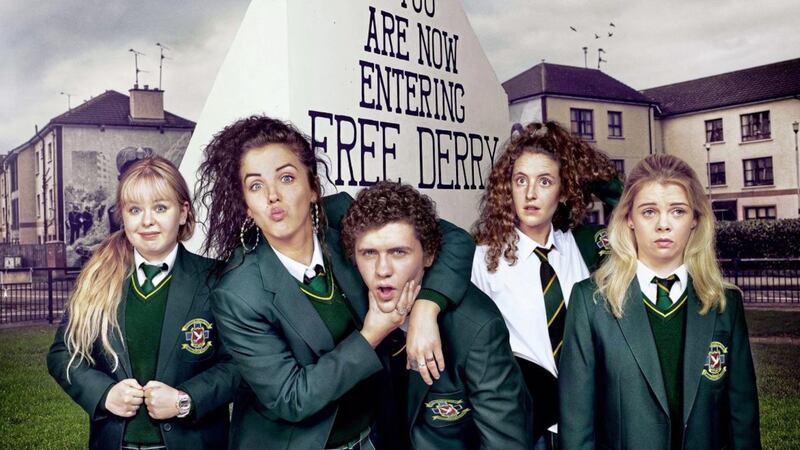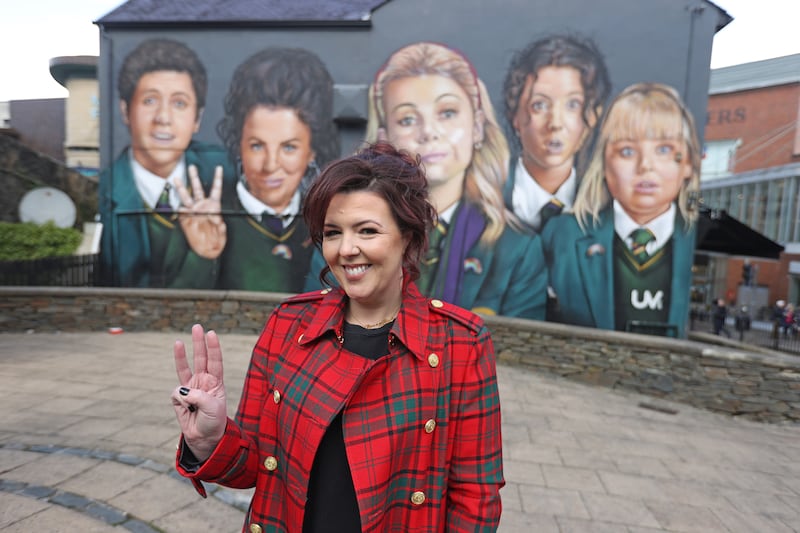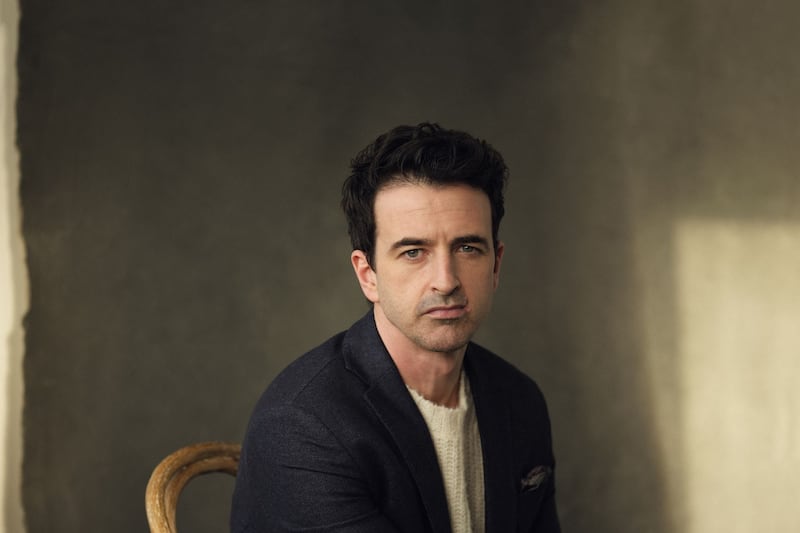I’VE been watching Derry Girls these last few weeks and apart from finding it absolutely hilarious it occured to me that it was a mirror reflection of my childhood growing up in the midst of the madness of the Troubles.
The sitcom’s writer, Lisa McGee, is of a similar vintage to myself, grew up in the same city as myself, went to school here and walked the same streets that I did. What I find remarkable about the comedy is that if focuses so little on the Troubles that plagued this corner of the world. In the same way that we as children focused so little on it.
Despite the raging war outside the windows of many houses, the focus was always on teenage angst, unrequited love, school problems and the like. I don’t really remember ‘worrying’ about the Troubles per se, perhaps worrying that I couldn’t get to where I was going because of a bomb alert or an incident, but never really actively worrying about it as a child.
As teenagers we were careful as a matter of course. We were careful where we went, who we spoke to, what we said. We wouldn’t sit beside the front door of a bar in case gunmen came in shooting. We didn’t go into certain areas. That was normal, we didn’t worry about it.
I’ve written about this brand of ‘normal’ before, for children of the Troubles. When peace arrived and many of us survived relatively unscathed, we all hoped that our children would never have to deal or ever worry about such things as terrorism in their young life.
But a recent government survey has found that four in 10 parents are indicating that their children are today anxious about the threat of terrorism.
The YouGov survey of over 1,800 parents in the UK with children aged five to 18 was commissioned by the Mental Health Foundation to uncover the impact world events could be having on children, and equip parents to respond.
Almost a quarter of parents indicated their children were anxious about the threat of nuclear war. A third of parents thought their children were anxious about Donald Trump’s presidency. A third of parents also thought their children were anxious about global warming and climate change.
In terms of signs parents are noticing, of those whose children were anxious, six in 10 have noticed their children starting to ask a lot more questions, a quarter had noticed their children seeking reassurance, and 13 per cent reported that their children have gone as far as asking to avoid activities such using public transport or going to busy public places. A further eight per cent reported their children having nightmares.
It found that overall almost four in 10 parents were concerned that their children are becoming more anxious about world and UK events.
Child psychology expert Dr Camilla Rosan of the Mental Health Foundation said: “We often forget that distressing world events can have a significant impact on the mental health of our children. This is especially true in the digital age where it’s no longer possible to shield our children from worrying or scary news.
“Our poll indicates widespread anxiety among children– especially about the threat of terrorism. But the good news is there is a lot we can do to help children cope with scary events.
“It’s important for example to let children know the facts of any given event but also to put things into perspective and let them know they are safe. Anxiety about scary news events is normal, but not something children have to deal with alone.
“Parents can really help tackle problems early and support good mental health for their children by talking about these issues in an open and honest way. This lets them know that it’s okay to talk about scary or tricky subjects, and hopefully, will give them the confidence to talk about things that might be playing on their mind at other times too.”
The Mental Health Foundation which works to prevent mental health problems, has released 10 guidelines for parents. ‘How to talk to you children about scary world news’ is available for free on their website. The tips included are:
A news-blackout is rarely helpful
Let them know the facts
Discourage overexposure
Let your children know they are safe
Let them know that it is normal to be concerned
Tailor the conversation to their age
Find the right time to talk about it
Leave lots of space for questions
Allow for repetition
Be as truthful as possible







